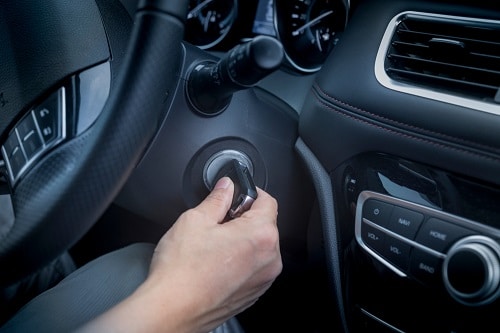Car engines can pose various unforeseen problems and are a hassle to deal with. What if you start the engine, but it cranks for a while before finally starting up. It can get quite troublesome if you rush to go somewhere. The situation can be embarrassing if you stop in a busy place or travel with someone. You have to figure out the reason behind the cause of this issue as early as possible. Let us look at the possible issues of why your car struggles to start but runs fine.
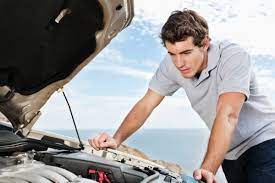
Table of Contents
Reasons Behind Car Struggles To Start But Runs Fine?
There are several reasons why your car might be slow to start but runs as normal once it gets going. Causes can vary from weather conditions to battery health, wiring issues, starter motor concerns, and fuel-pump health.
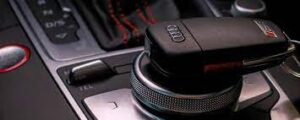
1. Starter Motor And Starter Relay Issues:-
When you hear a clicking sound while starting your car this may be a sign of wear and tear in your starter relay or starter motor. The electrical contacts that provide power to the starter motor will wear down over time, transferring less and less power to your starter motor. With less power, the starter motor will spin slower, causing that struggle you feel when starting your car. If you don’t have this repaired quickly, it can cause expensive damage to your starter motor.
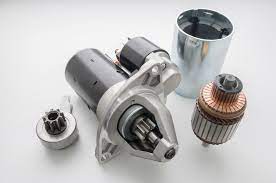
2. Battery Problems:-
If your battery isn’t sending enough current towards the starter motor, your engine simply won’t fire up. There’s a good chance that the problem is with your battery. Your battery is getting to the end of its lifespan. You might get away with a few slow starts, but a battery on its last legs will likely give out at an inconvenient moment.
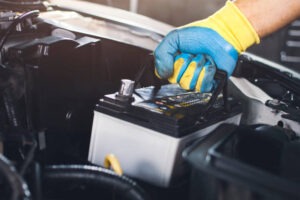
3. Fuel Issues:-
Another cause of why your car struggles to start but runs fine issue can be a blockage or leak in your fuel lines. Fuel lines transport fuel from the tank to the engine; any blockage or loss of volume through a leak can result in lower pressure than is necessary to power the engine. It’s not uncommon for a blockage in a fuel line to slow the start of your vehicle, only to run fine after.
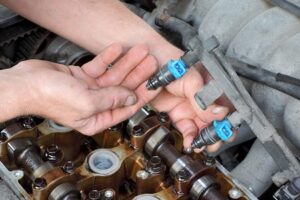
4. Bad Ignition Switch:-
The ignition switch is another reason a car will not start easily but will run fine. When broken, the ignition switch no longer supplies power to the starter motor and other engine components needed to start the car. This also stops the switch from starting the engine, so you have to start the car many times to power the engine.
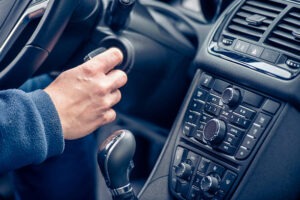
5. Damaged Distributor Cap And Motor:-
The distributor cap is responsible transports electrical energy from the ignition coil to the engine cylinders for the engine to ignite.
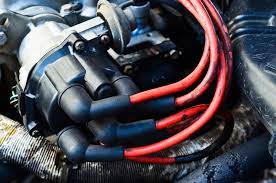
6. Clogged Air Filter:-
The function of the air filter is to supply oxygen to the car for the combustion process. This filter also prevents dirt, debris, pollutants, and dirt from entering the engine. If the air filter is clogged with dirt, debris, and other foreign substances, your car will struggle to start since there is a reduced amount of oxygen getting to the engine and also causing slow combustion. However, the vehicle will operate fine.
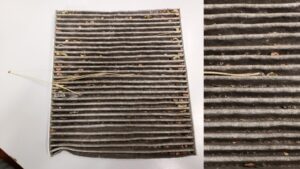
7. Failing Alternator:-
The alternator charges the car battery and generates the spark needed to start the engine. Thus, if your car struggles to start but runs fine, the alternator may be failing to sufficiently charge the battery.
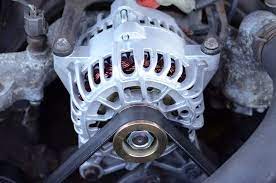
8. Broken Drive Belts:-
The vehicle drive belts can be the reason it takes longer for your car to start but runs okay when it starts. A loose drive belt will cause a charging system delay, so the car battery does not receive sufficient charging power.
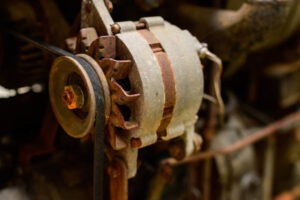
What To Do When Your Car Is Hard To Start But Runs Fine?
If your car takes more than 4 seconds to start, you may have an issue you need to deal with. If it’s extremely cold outside, this may be more of a common, weather-related issue and not much to worry about.
Step 1:- Determine The Problem
First, determine if the problem occurs when the car is hot, cold, or at all times. This will help narrow down where you should look. Before anything else, look for signs of a leak. Ensure that all of your wirings are clean and without nicks or bites. An overly worn or chewed wire can easily cause this type of problem. The same can be said for hoses. Corroded connections can also cause a slow start.

Step 2:- Check The Battery
A bad battery will make your car start slower and slower over time as it outputs less and less power.
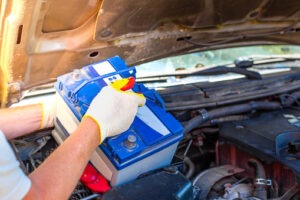
Step 3:- Check And Clean Your Sensors
Temperature and airflow sensors can begin to give bad readings if they are allowed to become dirty over time. This is a simple thing to fix. Locating the sensors may be the most difficult part but you should be able to do so with the help of your vehicle’s manual.

Step 4:- Test Your Fuel Pump
After inspecting your wiring and hoses for damage or leaks, consider testing your fuel pump. This is done by placing the key in the car and turning it “on” but not so that the engine turns over. Turn it off. Repeat two more times and on the third try, turn the car on so that the engine turns over. If it starts in 3 seconds or less, you’ve solved the problem for now. What you have, in this case, is a weak fuel pump that needs to be replaced.
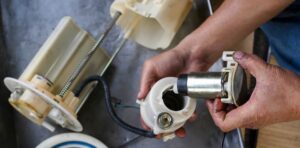
Step 5:- Check Your Filters
One of the most overlooked causes of why your car struggles to start but runs fine is clogged filters. This could be the oil or air filter. These both need regular servicing or replacement.
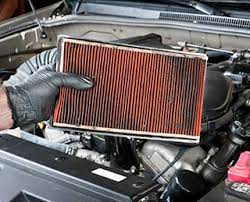
Conclusion:-
Many, many things could cause a slow start. The good news is that most of them are easy to troubleshoot on your own. However, if none of the above are the cause of your issue, you may need the help of a professional to find and fix the problem. We hope the above mentioned information about why your car struggles to start but runs fine will be helpful to all the readers. If anybody’s doubts persist feel free to comment in the comment section below. We’ll try to solve your doubts as soon as possible.
